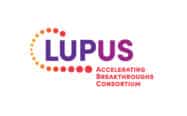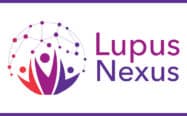NEW YORK, NY. Oct. 26, 2023. Lupus Therapeutics, the clinical research affiliate of the Lupus Research Alliance, is proud to share that the successful results of the Patient Advocates for Lupus Studies (PALS) pilot study were recently published in ACR Open Rheumatology , the official open-access journal of the American College of Rheumatology.
The PALS (Patient Advocates for Lupus Studies) Program was created to increase knowledge, positive attitudes toward, and intentions among people with lupus to join a clinical trial with the aim of increasing participation. These newly published results showed that one year after completing the PALS program, participants’ knowledge about lupus clinical trials (LCTs) had significantly increased, and nearly half took some further action with regards to joining a trial. Over one third (37%) spoke with their healthcare provider about lupus trials, 17% had been screened for their eligibility to join a trial, and 10% had enrolled in a study.*
THAT’S PROGRESS!
The study authors agree, concluding the results “suggest that the peer-support program is a promising means to educate patients with lupus about LCTs. This is an important finding because, from a theoretical perspective, knowledge leading to an improved understanding of LCTs is the first step in increasing patients’ awareness of protocols, resources, and consideration of participation in LCTs.”
Why Clinical Trial Participation is Important
Clinical trials of potential new lupus treatments are critical but have historically struggled to enroll participants who represent the diversity of all those impacted by the disease, particularly groups most affected. According to a published analysis from Stanford University, white patients constitute 33% of SLE cases but represent 51% of participants in clinical trials, while Black patients make up 43% of SLE cases but comprise only 14% of trial participants.
Trial participants must represent the real-world population with the disease so healthcare professionals can best understand how it works in various populations and help people to make the best treatment decisions for them.
Background on PALS
PALS, a peer-to-peer clinical trial education program, was co-designed with people with lupus and piloted at five academic medical centers belonging to the Lupus Therapeutics Lupus Clinical Investigators Network (LuCIN). Individuals living with lupus who had participated in a clinical trial were trained as peer educators to connect with lupus patients who had never been in a clinical study. Drawing from their experience, the peer advocates effectively built awareness and understanding of the risks and benefits, empowering others to actively share in decision-making about participation in a future clinical trial, all while increasing patient diversity in research.
PALS Study One-Year Results
The one-year follow-up evaluated the effectiveness of the program in inspiring people to take some action toward engaging in a lupus clinical trial. Questions probed whether participants had spoken to their healthcare provider about lupus trials and if they had called a clinical trial site as well as if they had been referred, screened for eligibility, and/or enrolled in a lupus clinical trial.
“We are excited to share the success of this pilot study as it provides evidence of a practical program that can be adapted and implemented to increase the participation of racially and ethnically diverse participants in lupus clinical trials,” commented Corresponding Author Saira Sheikh, MD. “As we look to the future, our focus is now on scalability and sustainability while our hope is that these opportunities can be available and impactful to our patients living with lupus, far and wide.”
Dr. Sheikh serves as Vice-Chair of the Lupus Therapeutics’ Lupus Clinical Investigators Network, the Linda Coley Sewell Distinguished Professor of Medicine, Rheumatology, Allergy & Immunology at the University of North Carolina at Chapel Hill and Director of the UNC Rheumatology Lupus Clinic and Director of the Clinical Trials Program at the UNC Thurston Arthritis Research Center.
About Lupus
Lupus is a chronic, complex multisystemic autoimmune disease that affects millions of people worldwide. More than 90% of people with lupus are women, often striking during the childbearing years of 15-45. Black, Hispanic, Asian, and Native American females and males are at greater risk than Caucasians for developing lupus. In lupus, the immune system, which is designed to protect against infection, creates antibodies that can target any part of the body, including the kidneys, brain, heart, lungs, blood, skin, and joints.
About the Lupus Research Alliance
The Lupus Research Alliance is the largest non-governmental, non-profit funder of lupus research worldwide. The organization aims to transform treatment by funding the most innovative lupus research, fostering diverse scientific talent, and driving discovery toward better diagnostics, improved treatments and ultimately a cure for lupus. Because the Lupus Research Alliance’s Board of Directors funds all administrative and fundraising costs, 100% of all donations goes to support lupus research programs.
About Lupus Therapeutics
Lupus Therapeutics, the clinical research affiliate of the Lupus Research Alliance, aims to accelerate the development of curative treatments for all patients living with lupus. Lupus Therapeutics collaborates with academic institutions, biotechnology and pharmaceutical partners through the unprecedented Lupus Clinical Investigators Network (LuCIN) to drive rapid and meaningful progress in the treatment of lupus patients. The organization elevates the patient voice, engages community stakeholders, and strives for representation of the diverse lupus community in the clinical research process with the most innovative and renowned experts throughout North America. Visit lupustherapeutics.org for more information.
*All participants received a $20 incentive (Amazon or Walmart, physical card or electronic) after completion of the posttest survey. Participants also received a $20 incentive after completion of each follow-up survey, for a total of up to $60 in incentives.






